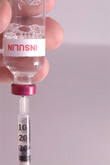Biosimilars/Research
Analytical similarity assessment of teriparatide biosimilar Terrosa
Terrosa and Movymia (both developed under the code name RGB-10), were the first biosimilars of Eli Lilly’s osteoporosis biological Forteo/Forsteo (teriparatide) in Europe. Gedeon Richter and Stada Arzneimittel gained European Commission approval for Terrosa and Movymia in January 2017 [1] and launched the biosimilars in August 2019 [2]. Meanwhile, RGB-10 was also approved in other countries, including Switzerland and Japan.
Positive results for Bio-Thera’s arthritis copy biologicals
China-based Bio-Thera Pharmaceuticals have begun a phase I trial for its Simponi copy biological and obtained positive results from a phase III trial of its Humira copy biological.
Positive trial results for Lannett’s insulin biosimilar
US firm Lannett has completed a successful trial of their candidate insulin biosimilar, which was compared to Sanofi’s blockbuster insulin product Lantus.
NeuClone progress with ustekinumab and trastuzumab biosimilars
Australian biosimilars firm NeuClone has started a phase I trial of their proposed ustekinumab biosimilar and announced positive results from a trial of their trastuzumab biosimilar.
Pharmacists must be ready to take the lead on biosimilars
Pharmacists should take the lead in increasing the adoption of biosimilars in clinical practice, says a review of the implications of biosimilars for pharmacy practice. The review suggests that pharmacists in all settings can take a key role in advocating for biosimilars [1].
Use of pegfilgrastim copy biological Mecapegfilgrastim in neutropenia
Italian oncologists report on studies carried out with a new pegfilgrastim copy biological, Mecapegfilgrastim (HHPG-19K) [1].
Biosimilar education for Canadian nurses
In general, Canadian nurses are familiar with biosimilars. However, according to authors Sehdev et al., they may have knowledge gaps in their specific understanding, resulting in a significant unmet need for education.
Brazilian efficacy and safety data for biosimilar infliximab CT-P13 in the treatment of psoriasis and psoriatic arthritis
Celltrion/Hospira’s infliximab biosimilar Remsima/Inflectra (CT-P13) was authorized by the European Medicines Agency (EMA) in 2013 [1] and by the US Food and Drug Administration (FDA) in 2016 [2].
Biologicals and biosimilar use in Asian patients with IBD
The increasing incidence of inflammatory bowel diseases (IBD) has become a major challenge for gastroenterologists in some Asian countries, particularly China, Japan and Korea. This subject was discussed in the August 2019 issue of the Journal of Gastroenterology and Hepatology [1].
Samsung reveals positive trial results for bevacizumab biosimilar, but admits to failure with rituximab
A phase III trial of Samsung Bioepis’ bevacizumab biosimilar has shown equivalence to reference drug Avastin (bevacizumab). However, the company has admitted to failures in its attempt to develop a rituximab biosimilar at a recent trial in the Seoul Central District Court.












